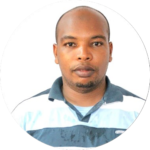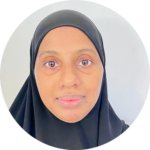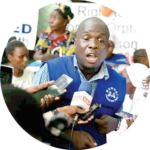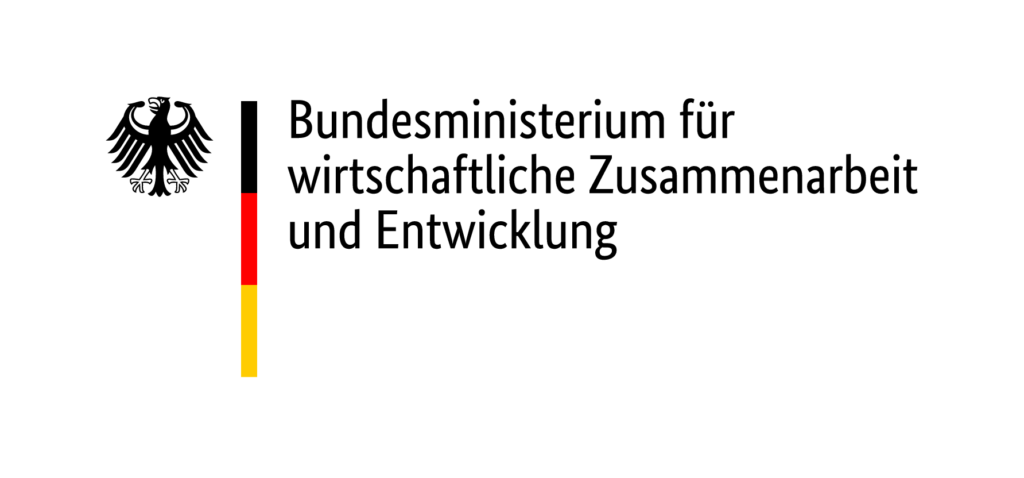RELEARNING TO LISTEN
VOICES FROM THE GLOBAL SOUTH

Public event with four activists from Kenia
08 to 24 October
Those who grow up in the Global North have coloured access to information and history. Western sources are often perceived as more trustworthy than expert voices from the Global South. Our knowledge of the Global South is biased and incomplete. Who is heard or not heard reflects power relations.
World maps are a good example of this. Why are we still learning with the Mercator projection from 1569, which conveys an idea of the dominance of the North? The debate on the concept of development also raises these fundamental questions. We need to change this old-fashioned approach.
For this reason, we have organised an inspiring series of events this autumn. The following four experts from Kenya, who are actively working to eradicate injustices in their communities, will share their knowledge with us.
Let’s listen! Let’s learn to change our perspectives!
Want to participate? Which talk? Online or hybrid?
Please contact Hawa for registration: hawa.noor@ben-bremen.de
Daniel Kobei
Founder and CEO Ogiek Peoples‘ Development Program (OPDP)

Walid Ahmed Ali
Human rights and environmental activist,
Head of Lamu Youth Alliance (NGO)

08 October, 10 – 11.30 AM
Daniel Kobei is the founder and Executive Director of the Ogiek Peoples‘ Development Program (OPDP), a non-governmental organisation based in Kenya, which has had the status of a recognised NGO in the Economic and Social Council (ECOSOC) since 2019.
The organisation’s mandate is to promote the human and land rights of the indigenous Ogiek community and other indigenous peoples (IPs) in Kenya and across Africa. The reason for this is the ongoing deprivation of land rights of the Ogiek community due to displacement from their ancestral home, the Mau forest, as a result of land grabbing since the colonial era and climate change.
Kobei is a committed human rights defender for intellectual property rights and a community development enthusiast who has participated in numerous high-level discussions pertaining to intellectual property rights.
One of his notable successes is the Ogiek community’s victory in a landmark case against the Kenyan government at the African Court on Human and Peoples‘ Rights in Arusha, Tanzania, on 26 May 2017.
Another example is the same court’s reparations ruling on 23 June 2022, which confirmed the Ogiek’s land rights to their ancestral land in the Mau Forest.
Kobei has extensive knowledge of Ogiek culture, leadership, land rights, environmental protection, climate change and human rights. With the help of OPDP, he is leading his community of hunter-gatherers to save the Mau forest from further destruction and has made a significant contribution to the restoration of the forest.
He holds an MBA in Strategic Management from Egerton University in Kenya and a Postgraduate Diploma in Project Evaluation and Management from the Maastricht School of Management (MSM) in the Netherlands and will talk about his efforts to defend the land rights of his indigenous Ogiek community.
10 October 10 – 11.30 AM
Walid Ahmed Ali heads the Lamu Youth Alliance organisation and has been active in the community as a human rights and environmental activist since 2009. He was part of the Mandela Washington Fellowship in 2014 and has actively advocated for sustainable environmental protection and community work through various interventions.
Walid is passionate about the youth of Lamu and has worked tirelessly to ensure that they are empowered in various areas such as leadership skills, technical skills and their integration into the locally available financial infrastructure. He has also championed environmental sustainability and partnered with the ‘Save Lamu’ movement to stop the Lamu coal-fired power plant (through a court case) – a coal project that could have had serious negative impacts on the local population and marine wildlife.
Due to the high level of human insecurity in Lamu, Walid has also been involved in numerous youth empowerment initiatives, such as community dialogues, theatre performances, graffiti installations and peace football tournaments.
His organisation donated food to community members in need during the COVID 19 pandemic and sensitised communities about the disease.
He has a bachelor’s degree in development studies and will talk about his efforts to protect the environment, in particular his role in the fight against the Lamu coal-fired power plant and the restoration of the mangrove forest in his home town of Lamu.
Rahma G. Abbas
Founder and CEO of Muslims Women Advancement of Rights and Protection (MWARP)

Francis Auma
Human rights activist and head of Rapid Response Unit (RRU) at Muslims for Human Rights (MUHURI) NGO

22 October, 10 – 11.30 AM
Rahma Gulam Abbas is the founder and executive director of Muslims Women Advancement of Rights and Protection (MWARP), which was founded in 2019. She has been committed to the advancement of human rights and civil liberties for 15 years and is passionate about justice and dignity for women, girls and youth.
By asserting their social, economic and civil rights in a country with an overwhelmingly young population, the organisation helps them to deal with and combat challenges such as unemployment, corruption and nepotism. These factors prevent young people from pursuing gainful employment – the only hope for a better life.
The coastal region of Kenya, where Rahma works, has always been a marginalised area in national development efforts and has poor development indicators, especially in terms of social inclusion of the youth, resulting in increased involvement in criminal activities despite existing participation mechanisms. Women and girls, especially in marginalised areas, are also affected by exclusion due to poor education, lack of skills and job opportunities, low financial resources, limited access to credit, technology and information, unbalanced gender roles and sexual and gender-based violence. These challenges are sidelining them and hindering the realisation of sustainable development.
Rahma Gulam Abbas has a Bachelor’s degree in Arts and Social Sciences and a Master’s degree in Finance. She will talk about the injustices faced by women and youth in her region and their daily struggle for inclusion and environmental protection.
24 October 10 – 11.30 AM
Francis Auma is a human rights activist and heads the Rapid Response Unit (RRU) at Muslims for Human Rights (MUHURI), a national human rights organisation based in Mombasa, Kenya.
For the past 16 years, Auma has been at the forefront of advocating for the rights of community members at the grassroots level in Kenya and the East African region in general.
The Rapid Response Unit, for which he is responsible, advocates for people’s rights and organises peaceful demonstrations in the Coast region and Garissa County. One of Francis‘ tasks was to follow the case of a thirteen-year-old girl from Kinango in the Kwale district who was shot dead by a police officer in 2014. The latter was later convicted. Auma has also led demonstrations against the Lamu Port South – Sudan Ethiopia Transport (LAPSSET) corridor project, police brutality, the suffering of Kenyan domestic workers in Saudi Arabia and rampant land grabbing in and around Mombasa, among others.
In his quest to bring unfair and unjust human suffering to light, he has endured police beatings, harassment and death threats. In Mombasa, he is the public face of resistance against injustices such as extrajudicial killings and land grabbing. He has also been involved in various national and international processes to promote and protect people’s fundamental rights and freedoms and has testified before numerous taskforces.
Francis will speak about his advocacy against injustices and human rights violations, focusing on the Lamu Port South – Sudan Ethiopia Transport (LAPSSET) corridor project, which was rejected by the local population due to land grabbing and environmental degradation concerns.
Gefördert von ENGAGEMENT GLOBAL mit Mitteln des

Gefördert von

Gefördert von


Gefördert von BINGO! Die Umwelt-Lotterie
